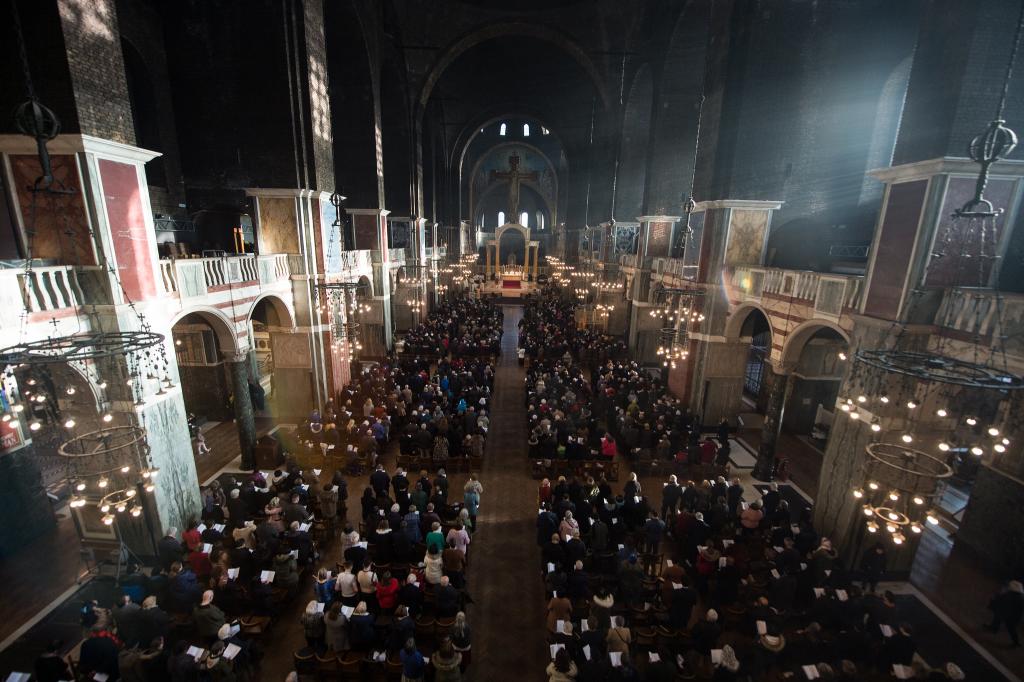On Friday, 6th March, Cardinal Vincent shared the following message with priests and parishes of the diocese about coronavirus:
In these present and swiftly developing circumstances, there are some important perspectives to keep in view.
The danger of the coronavirus lies in the fact that there is no immunity or vaccine present at this time. The virus in itself is not life-threatening for the vast majority of people.
In this evolving situation the fundamental principle to observe is that of following carefully and promptly the public advice issued by the Government in conjunction with its health and scientific experts.
At present the country is in the 'containment' phase, which corresponds to the first stage of the advice issued to us about Church practices by Professor Jim McManus. This does not rule out the sign of peace, nor the distribution of the Precious Blood from the chalice.
It has also been stated that we are 'moving towards' the second phase, described as 'delay', which will require more stringent measures, again as outlined by Professor McManus. We must be ready to take this step fully and comprehensively when it is called for.
The individual circumstances of parishes differ, not least in the anxieties of the people. Clearly in some parishes, and in some dioceses, steps have been taken now to include measures which strictly pertain to the second phase. The advice of Professor McManus is that there are disadvantages in doing this, in as much as anticipation can reduce the impact of the more serious phase of the protective processes.
For the moment I would be grateful if you could stress the following points in your parishes:
- the importance of everyone following the essential official guidance of maintaining good personal hygiene, a regular and thorough washing of hands, especially after being out, on public transport or greeting other people, and of protecting others from our sneezes and coughs;
- the importance of priests, deacons, altar servers and extraordinary ministers of Holy Communion washing their hands before Mass and before and after distributing Holy Communion;
- the importance of giving the sacred vessels, once purified, a thorough wash with soap and hot water after use;
- strongly encourage people to receive Holy Communion on their hand, explaining again the significance of the gestures involved in this action, and reminding them that, given the presence of saliva in receiving Holy Communion on the tongue, this is to be avoided for the time being;
- emphasising that members of the faithful who are sick or experiencing symptoms of sickness are not obliged to attend Mass, and out of charity, ought not to attend. The teaching of the Church (CCC2181) allows for this.
To omit the sign of peace, while not required at this stage, might be an additional reassurance for many people, so too might the be to cease to offer the Precious Blood at Holy Communion. These will certainly be required when we enter the second stage of this process. I trust your judgement in these matters, having in mind all that I have written above about value of not moving prematurely.
Two further points. The first concerns visiting residents in care homes and home visits to the sick and elderly. These require particular care, as outlined in the advice we have been given. These are the places of great risk and I ask you to exercise all care in these aspects of your ministry.
The second is this: in the initial guidance we were given, we were asked to play our part in reassuring people with accurate information about the nature and spread of this virus. This is an important part of our role, especially at present when so much reporting of these issues is couched in alarmist headlines. The fight against this virus will be long, some experts saying that its spread will peak in late April or May. So we must take this task steadily and constantly be guided by official advice.
I thank you for your cooperation and for all that you do in letting people know of these points and of all working together to contain this virus in this present stage and then being ready for the next stage, of delaying its spread.
Professor Jim McManus is Director of Public Health for Hertfordshire County Council and Vice President of the Association of Directors of Public Health UK.
The advice issued by the Bishops’ Conference is available here. It can also be found here.




